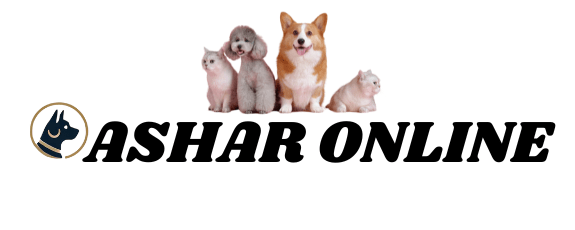Recognizing the Fundamentals of Dog Care
Walking and feeding your dog are not the only aspects of dog care. Proper dog care includes regular health exams, brushing, exercise, and mental stimulation. This guide will ensure your dog’s well-being. pet care routines will show you the value of a regular pet care schedule.
Regular Health Check-Ups
Regular veterinarian checkups are essential to keeping your dog healthy. These exams ensure your dog gets the latest vaccines and care. They also help detect any health issues early.
Vet visits are important because they allow you to keep an eye on your dog’s general health.
- What to Expect: The vet will check your dog’s weight, teeth, ears, and health.
- Frequency: Adult dogs usually visit once a year. Puppies and seniors may need more frequent visits.
Appropriate Diet
The secret to your dog’s health is a balanced diet. A healthy diet promotes their development, vitality, and general health in daily pet care routines plan.
A balanced diet should give your dog the right mix of fats, proteins, and carbs.
- Selecting Food: Choose premium dog food that fits your pet’s needs.
- Dietary Needs: Certain dogs may require a particular diet or have allergies.
Physical Activity and Exercise
Exercise is essential to the mental and physical well-being of your dog in pet care routines. It gives them a constructive way to release their energy and helps prevent obesity.
Benefits: Frequent exercise helps your dog stay in shape and lessens behavioral issues.
- Exercise Types: Playtime, walks, and agility training are all excellent choices.
- Routine: Establish a consistent exercise program to keep your dog active and happy.
Grooming and Hygiene
Keeping your dog clean and well-groomed is crucial for its health and comfort. Grooming prevents matting, reduces shedding, and helps spot skin issues.
Grooming Basics: Clean your dog’s coat by removing loose fur and dirt.
- Bathing: Bathe your dog as needed, using a dog-specific shampoo.
- Extra Care: To maintain general hygiene, cut nails, wash ears, and brush teeth.
Immunizations and Preventive Medical Care
Vaccines protect your dog against diseases that can be deadly. Preventive care often includes treatments for parasites like fleas, ticks, and heartworms.
Your dog needs vaccinations for parvovirus, rabies, and distemper.
- Prevent parasites by deworming on a regular basis and using flea and tick repellents.
- pet care routines: Schedule regular vet check-ups to maintain vaccines and parasite control.
Instruction and Interaction
Dog behavior and contentment stem from social development and skill acquisition. Effective training strengthens your bond with your pet. It also helps prevent bad behaviors.
Basic commands: Include commands like come, sit, and stay in your dog’s training.
- Socialization entails exposing your dog to a variety of individuals, environments, and animals.
- Training that Works: Apply positive reinforcement and stick to your training regimen.
Enhancement and Excitation of the Mind
Exercise on the physical plane is not as important as mental stimulation. It prevents boredom, which can lead to destructive behaviors. It also keeps your dog entertained.
Activities: Training exercises, interactive games, and puzzle toys.
- Importance: Mental exercises maintain the brain’s vitality and activity in dogs.
- Toy rotation: To keep your dog interested and engaged, switch out the toys on a regular basis a pet care routines.
Security and Readiness for Emergencies
You can save your dog’s life. Make their environment safe. Be ready for anything. Make sure your house is pet-proof and have an emergency plan in place.
Safe Environment: Keep dangerous plants and garbage cans locked.
- Emergency Kit: Keep a list of emergency contacts and a first-aid kit for pets.
- Be prepared by having a plan for natural disasters and knowing the basics of first aid.
Special Care for Senior Dogs
Older dogs need extra care and attention. Adjust their routine to meet their changing needs. This will keep them comfortable and healthy.
Adjustments: Change exercise routines and provide a comfortable living space.
- Health Monitoring: Detect signs of aging and resolve health issues immediately.
- Support: Provide joint supplements and consider a senior-specific diet.
Conclusion
pet care routines is essential for a happy, healthy pet. These pointers will help you make sure your dog has a happy, long life. Maintain consistency in your self-care practices, and when in doubt, consult an expert.
FAQs
What is a care plan for a pet?
A pet care plan includes a schedule for:
- Regular health check-ups
- Vaccines
- Grooming
- Exercise
- A balanced diet
- pet care routines plan
It ensures the pet’s well-being.
What is the schedule for taking care of dogs?
A daily schedule includes feeding, exercise, grooming, and mental stimulation. Regular vet appointments and vaccines are also part of the plan of pet care routines.
What are the measures to take care of a pet?
- Provide sufficient nutrients
- Ensure regular exercise
- Schedule routine vet visits
- Maintain grooming and hygiene
- Offer mental stimulation
- Ensure safety and emergency readiness
- pet care routines
What is basic pet care?
Basic pet care is feeding, grooming, and exercising them. It also means to take them to the vet and keep them safe.

